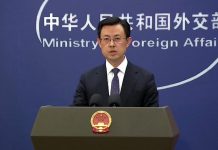
BANGKOK, Thailand – A recent survey has revealed that Thailand’s literacy rate has risen to nearly 99%, positioning the country at the top of ASEAN rankings.
Assoc. Prof. Dr. Prawit Erawan, Secretary-General of the Education Council, and Mr. Thanakorn Donnuea, Director-General of the Department of Learning Promotion, announced the results of the 2025 national literacy survey. Conducted by the Education Council Secretariat in collaboration with the Department of Learning Promotion, the survey was based on a reading assessment developed by the National Statistical Office. The study covered 7,429 sub-districts across the country, sampling 225,963 households and a total of 533,024 individuals.
The findings indicate that the illiteracy rate among Thais aged 15 and above stands at 1.17%, while for those aged 7 and above, it is 1.16%. A provincial breakdown shows that 51 provinces have an illiteracy rate below 1%, 25 provinces range between 1-5%, and only one province reports an illiteracy rate exceeding 10%. Based on this data, Thailand’s literacy rate is now among the highest in ASEAN. Compared to a 2022 regional survey, Thailand is projected to rank first, surpassing Malaysia and Singapore.
The study also highlighted key concerns:
Literacy Decline – A growing number of elderly individuals and unemployed individuals are experiencing reading skill deterioration, a “silent threat” to national literacy.
Employment as a Literacy Driver – The need for jobs, particularly in industrial zones, has motivated increased literacy efforts.
Educational Disparities – Inequality between small and large schools plays a significant role in literacy development, alongside economic disparities.
Supportive Environments – Community-based reading groups, such as senior citizens’ clubs, help maintain literacy skills and promote lifelong learning.
Policy recommendations include:
Promoting Active Aging through literacy programs to enhance health, security, and overall well-being among the elderly.
Targeted Reading Initiatives based on specific interests and needs of different population groups.
Leveraging AI and Modern Media to improve literacy engagement across all age groups.
Job Creation Efforts to help unemployed individuals develop reading skills and self-improvement opportunities.
The survey results will be used for educational policy planning and strategic development to enhance Thailand’s global educational competitiveness. The Education Council Secretariat has also shared this updated data with UNESCO for international ranking assessments, ensuring an accurate reflection of Thailand’s education quality. (TNA)










